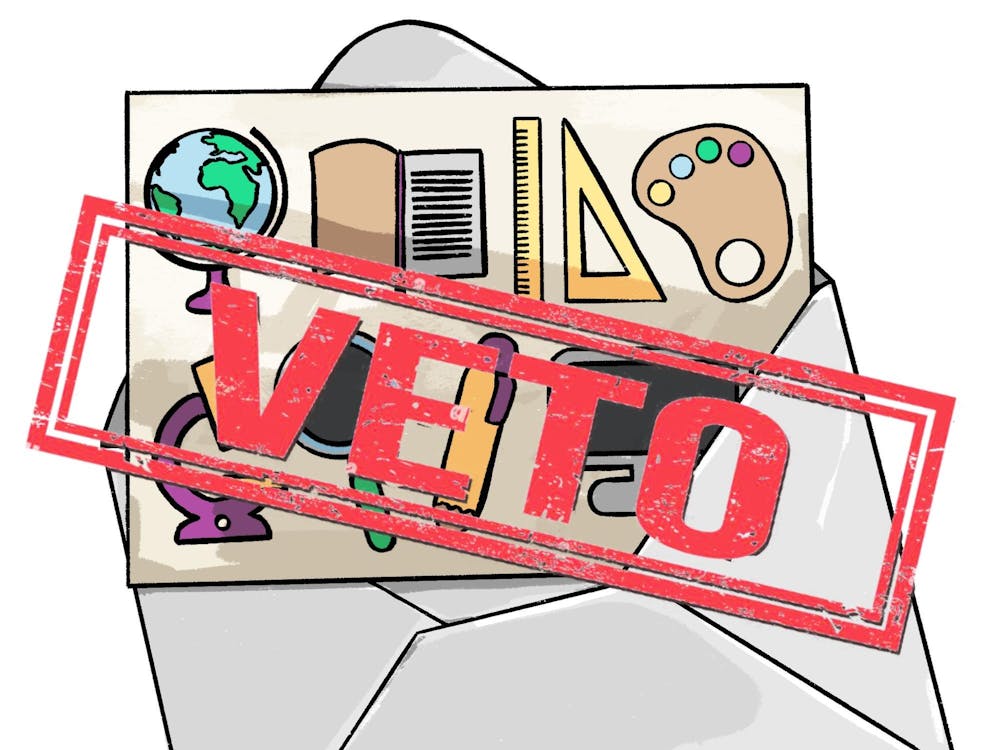Starting college is a big adjustment for anyone because many things are different from high school. My experience has been no different. Here are some of the biggest differences I’ve noticed since being on campus:
No more special education classes
Not everyone was in special education classes through high school, so very few people will be able to relate to this as well as I’m able to.
Nonetheless, in high school, there’s a dedicated classroom with a dedicated teacher (often called an intervention specialist) where you go if you need extra help learning. These classrooms were where I spent most of my days, although I attended regular classes, too. I also had a one-on-one aide who would help me get from class to class, push my wheelchair or carry my supplies. You get none of that in college.
While each university, including Miami University, has a dedicated department ensuring you get appropriate learning accommodations, there are no dedicated classrooms or aides. When I needed help carrying things or getting from one place to another, I asked my friends nearby to walk with me and carry some of my things. Unless they also had a conflict, they were more than willing.
If you have classes in the same building, consider yourself lucky
Getting from class to class requires going to multiple buildings. On occasion, I’ve had classes on opposite sides of campus. It’s either a 20-minute walk or anywhere from a 5–15-minute bus ride. With my disability, I often opt for riding over walking, but even with riding the bus, I’m outside for at least five minutes each time.
This past fall semester, I was lucky enough to have both my morning and afternoon Tuesday and Thursday classes in Williams Hall. But, because of the amount of time I had in between, I often got lunch, went to work or did something else, and then I came back. There’s no getting out of walking outside in college.
No more substitute teachers
Professor got sick? Professor’s kids get sick? Do they have a different conflict? Guess what: class gets canceled!
There aren’t any substitute teachers in college. Yes, there are undergraduate and graduate assistants, but they’re more for grading assignments. I’ve had professors that have never canceled class, and I’ve had some that have canceled it 50% of the time. A couple of my professors have known about conflicts at the start of the semester and have listed the days that class will be canceled on the syllabus.
If a class gets canceled, don’t expect a free day, though. Most of the time we’ve had some type of assignment to do in lieu of class.
Enjoy what you're reading?
Signup for our newsletter
Classes can have up to 200 students
It’s not very often that classes are close to or at capacity, but when they are, you better get there early if you want a good seat and be prepared to sit around a little after it lets out (especially if you use a wheelchair to get around campus).
I’ve had at least one large class since I transferred to Miami. This semester, I have a class that has a capacity of 130 students, and it’s overfull.
I’m excited about that class. NOT.
No school supply lists
Gone are the days when you had specific school supplies for each class. All you need for college is a laptop, a notebook or two, a binder and a few folders.
Everyone has a different system, but I have a binder, a folder for each of my classes, an “extra” folder for carrying other important stuff that doesn’t go in my class folders, my laptop, my iPad, pencils and pens.
One helpful tip: make sure your computer is fully charged before class, and even if it is, bring a charger. You don’t want to be screwed when it dies in the middle of class and you can’t plug it in.
Some professors may ask you to get specific things for their class, but that isn’t common (I’ve only had it happen twice since I started college). Your major may require some specific equipment, but other than that, it’s pretty straightforward. There are also your textbooks, but the majority of those nowadays are eBooks, so that really lightens up your load.
Counselors are now advisers
In high school, you had guidance counselors. These individuals help you through any struggles, make sure you’re taking the right classes, ensure your grades are what they should be and more. Once you get to college, you have the same sort of person assigned to you who performs the same duties, but they’re called an adviser.
Unlike high school, whoever is assigned to you as your adviser is based on what you’re majoring in, and sometimes, your class standing. You also don’t get a slip of paper randomly summoning you to their office. Instead, you stop by during their office hours or make an appointment.
You assign your own lunch
Remember receiving your schedule right before school started and anxiously waiting to see what lunch period you had been assigned? That doesn’t happen in college.
Your assigned lunch period is between classes (or between work and classes) when you have enough time to eat and get to the next thing. If you’re not already good at time management, you learn fast.
Need to take medications during the school day? Carry them with you
If you had a requirement to take medications during the school day, you may remember having to leave class and go to the nurse to take them. There’s no school nurse in college. If you need to take medications during the day, you have to ensure that you carry them with you.
Students in dorms may be able to plan everything out so that they can run back, take their medications and then leave again. But I commute, so I don’t have that option. I carry all the medications I’ll need during the day in my purse, along with some extra in case my little travel supply runs out.
Whitney Wilson-Harris is a junior double-majoring in journalism and commerce, with minors in English and health behavior. She is part of The Miami Student’s design team and occasionally writes articles for other sections.




